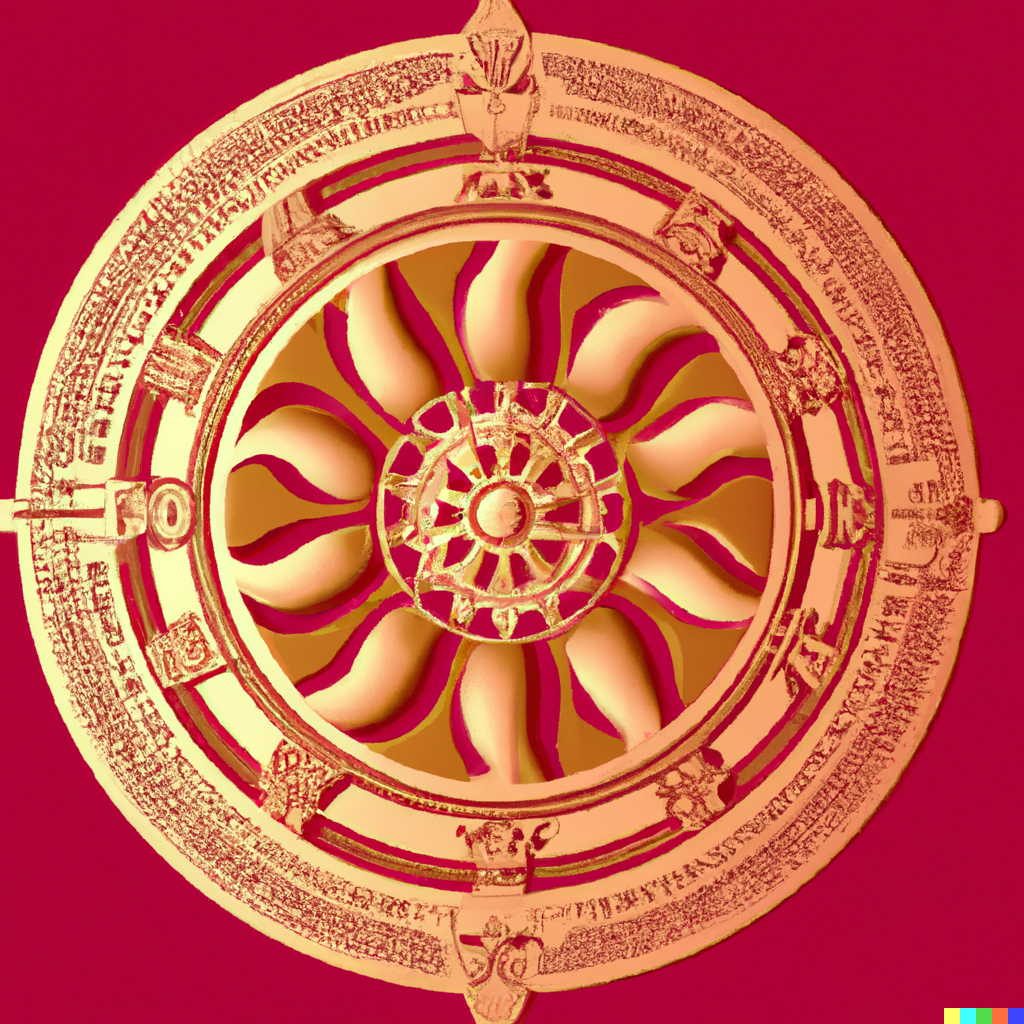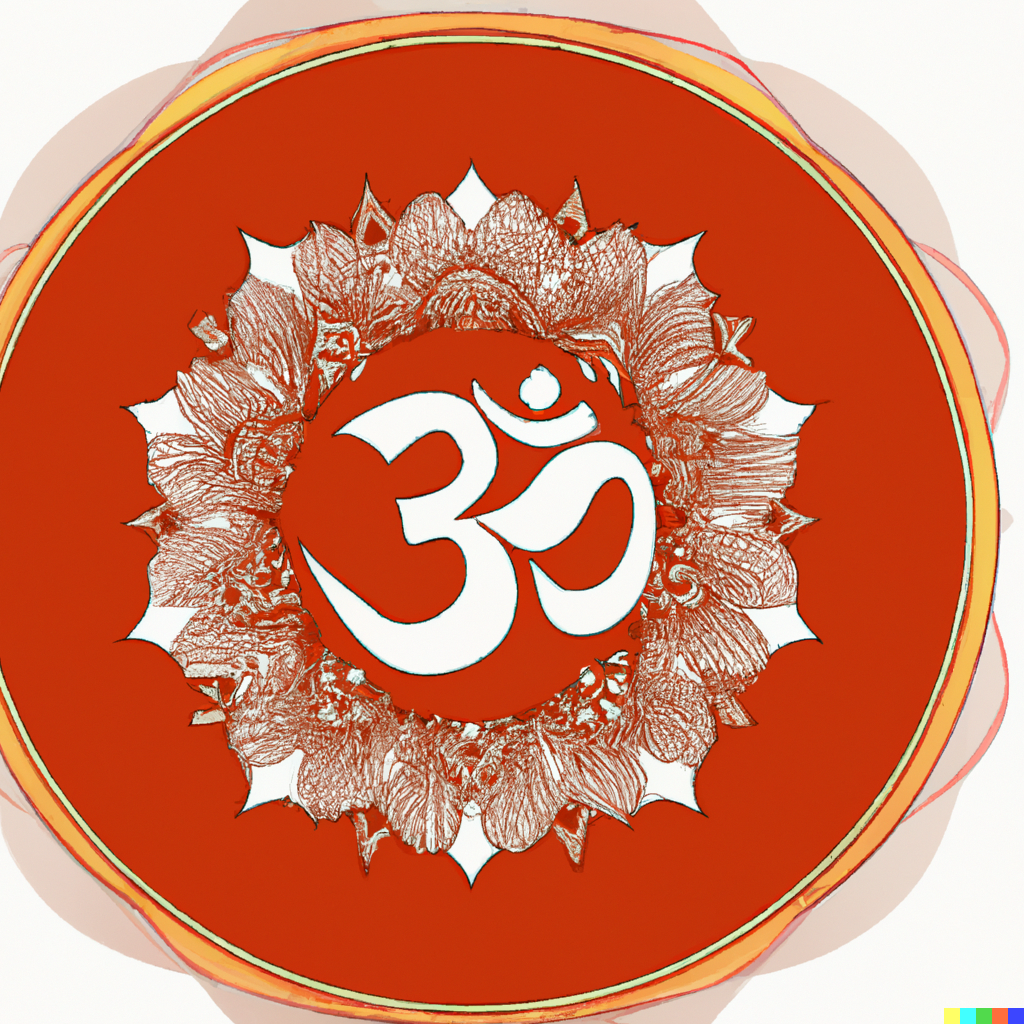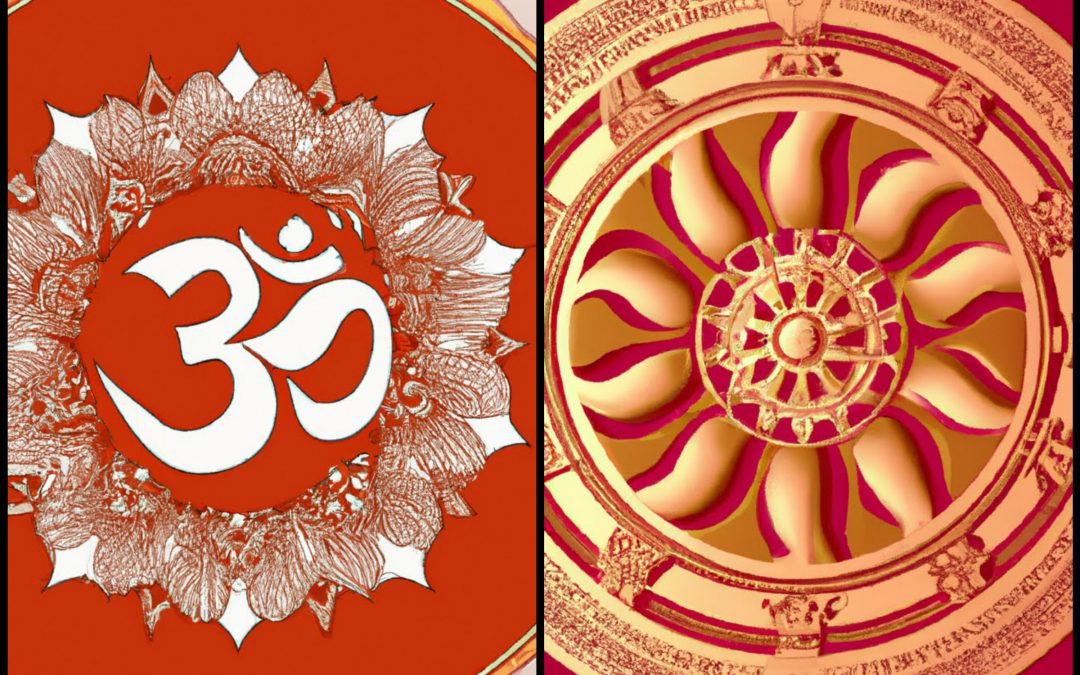Introduction
When author and guest Parag Shan introduced the concept of Dharma in episode 25, I had to take a moment to consider. I knew of the basic principle of Karma- You get what you give, and it always comes back around. But the ancient moral code of dharma was new to me.
Both concepts or Karma and Dharma are deeply rooted in the spiritual and ethical traditions of Hinduism, Buddhism, and Jainism, and continue to cast a profound influence on contemporary society. Dharma, often described as righteousness or duty, and karma, the principle of cause and effect, illuminates the path we traverse through the complex web of modern life.
Origins of Dharma

Dharma is a key pillar in the Mahabharata, the ancient Hindu epic. It encapsulates ethical principles that guide human behavior in an effort to create a harmonious society. Its not simple to define because there are many facets to what is included in the philosophy including what one’s correct action is, one’s duty and the cosmic and moral code. The essence of Lord Krishna’s wisdom to Arjuna was that dharma is a duty or religion meant for one’s soul rather than their body. Dharma stands for all that is just, right, and virtuous.
Arjuna is a warrior, and is second guessing the war he is about to wage. Lord Krishna explains that the war is his dharma, and it is his dharma to do battle.
“Dharma is that which sustains. It sustains your relations, it sustains the world around you, and the entire web of human relations; not just with other humans but with humans and animals, humans and plants .. it’s a law that sustains all possible relations in the universe. It’s a law that literally sustains the universe … no life is isolated, all forms of life are interrelated in the higher realms and the cosmic law which sustains and nourishes everything in the universe.”
Parag Shan
Dharma is a complex concept with many meanings. To some dharma can be religion or belief system, while to others it means duty, righteousness or moral code. It can also mean finding your truth, the path to happiness, in doing what one was meant to do. It is a fire’s job to burn. It is a son’s job to obey. It is a teacher’s job to teach. Dharma prevents chaos, and brings those who follow it, and live it, to spiritual enlightenment.
“There are different types of Dharmas. There would be a Dharma of a child towards her father or towards her parents, there would be Dharma of parents towards the child, Dharma of a child towards her teacher, Dharma of the teacher towards the child, and Dharma towards her ancestors and the Dharma of ancestors towards that person, Dharma of a person towards the Devas – the beings in the higher ends. Then there are dharmas of occupation. Let’s say somebody serving in the army would have the Dharma of a warrior, a scholar would have the Dharma of a scholar, so you know what is the correct code of conduct, there is this nourishment. There is also duty. What is the duty of a scholar? What is the duty of an architect? So it’s bringing that Integrity of sustenance into your work.”
Parag Shan
Origins of Karma

“Karma,” arising from the Sanskrit word “kri,” denoting action, encapsulates the notion of cause and effect. What comes around goes around. This doctrine asserts that every action, whether material, psychological, or spiritual, generates energy that ultimately returns to its source. The cosmic law of karma is at the heart of Hindu, Buddhist, and Jain belief systems. In the Bhagavad Gita, Lord Krishna underscores that individuals are bound by their actions, past and present, but through selfless deeds and spiritual growth, they can transcend the cycle. Lord Krishna advises Arjuna, ‘You have a right to perform your prescribed duty, but you are not entitled to the fruits of action. Karma is not always immediate.
“The Hindu Dharma also makes a distinction between several different types of karmas; some karmas are light, some karmas are very heavy. The time at which a Karma fructifies also depends on the evolution of the soul. For very evolved souls the karma will fructify immediately so if they do something even slightly wrong they will get the result like possibly within hours. But for an immature soul, for a soul whose not that evolved, they may not get the results for lifetimes”
Parag Shan
Karma is often used when describing our poor attempts at environmental stewardship. When we treat the Earth badly, the Earth, in turn, will mistreat us. Our pollution of our air and waterways will inevitably result in more drastic seasons. Which results in an increase in natural disasters such as drought, hurricanes, forest fires and flooding. Conversely, if you treat others with kindness and humility, your actions will earn you a just reward. Our actions have an equal reaction, underscoring karma as an omnipresent equilibrium-ensuring force.
Conclusion
Dharma and karma, woven into the fabric of ancient Indian philosophy, transcend temporal boundaries to offer sagacious insights pertinent to human existence. These pillars of righteousness, duty, and cause and effect continue to illuminate our comprehension of ethical behavior and the ramifications of our actions. These concepts serve as a steadfast reminder that our deeds wield the power to shape destinies—both personal and communal—and to sculpt the world we inhabit.
What is your Dharma? What karma do you feel you’ve experienced? Comment down below.
References:
- “The Essential Practice of Dharma in Today’s World” by Jayaram V, Hindu
- The Bhagavad Gita
- The Mahabharata

